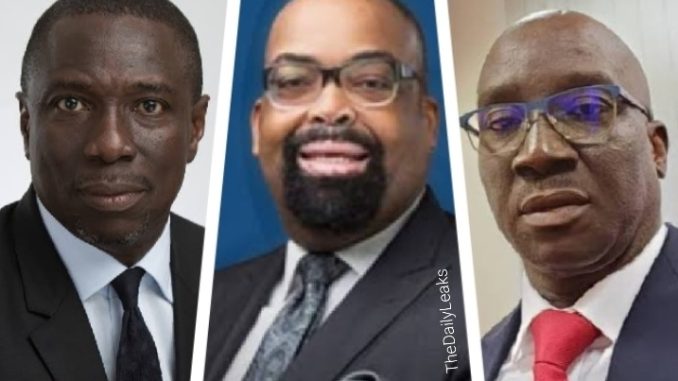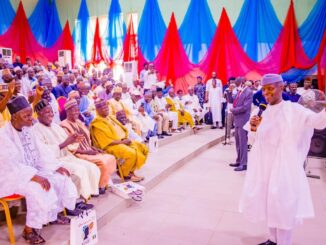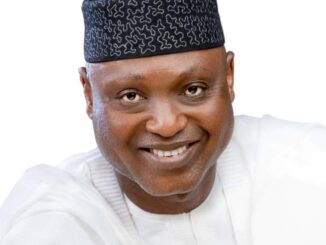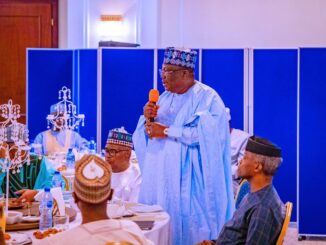
By Marvellous Nyang
September 21, 2024
The Edo State governorship election, held on September 21, 2024, is a pivotal political event that will shape the future governance of the state.
This election comes at a time of significant socio-economic challenges and political dynamics in Nigeria.
Electoral context
Edo State, located in the southern region of Nigeria, has been a focal point of political contestation. The current governor, Godwin Obaseki, who was elected under the People’s Democratic Party (PDP), has served two terms and is stepping down.
His administration has faced both praise and criticism for its handling of various issues, including infrastructure development, education, and healthcare.
Voter registration and participation
According to the Independent National Electoral Commission (INEC), there are 2,629,025 registered voters in Edo State.
As of the latest reports, 2,249,780 voters have collected their Permanent Voter’s Cards (PVCs), indicating a significant level of engagement among the electorate.
This leaves 379,245 PVCs uncollected, which may affect voter turnout.
Polling units and voting process
Voting began at 8:30 AM across 4,519 polling units in Edo State. INEC has implemented measures to ensure a smooth electoral process:
– Biometric Verification: Voters must present their PVCs for biometric verification to prevent electoral fraud.
– Security Measures: Adequate security personnel have been deployed to polling units to maintain order and ensure the safety of voters.
– Election Observers: Various local and international observers are monitoring the election to ensure transparency.
Key candidates
The election features several candidates, but three main contenders have emerged as frontrunners:
1. Asue Ighodalo (PDP)
– Background: Former chairman of Sterling Bank and economic adviser.
– Campaign Focus: Ighodalo’s campaign emphasizes economic revitalization, infrastructure development, and social welfare programs aimed at reducing poverty.
– Vision: He seeks to build on Obaseki’s achievements while addressing gaps in healthcare and education.
2. Senator Monday Okpebholo (APC)
– Background: Current senator representing Edo Central.
– Campaign Focus: Okpebholo is campaigning on a platform of enhanced security measures, improved educational facilities, and better healthcare services.
– Vision: His approach seeks to restore public trust in governance by addressing corruption and inefficiency within state institutions.
3. Olumide Akpata (LP)
– Background: Former president of the Nigerian Bar Association.
– Campaign Focus: Akpata’s campaign is centered around anti-corruption initiatives and legal reforms to promote justice and equity.
– Vision: He aims to foster a transparent government that prioritizes citizen engagement in policy-making processes.
Political landscape
The political landscape in Edo State is characterized by intense rivalry between the major parties, PDP and APC.
ALSO READ: How to persuade people to change their behaviour
The Labour Party (LP) has also gained traction among younger voters disillusioned with traditional party politics.
Challenges facing the candidates
Candidates face several challenges:
– Economic hardship: High unemployment rates and inflation are pressing issues for voters.
– Security concerns: Rising insecurity in Nigeria has made safety a top priority for many constituents.
– Public trust: There is widespread skepticism regarding politicians’ ability to deliver on promises.
Expectations for election day
As voting progresses throughout the day:
– Voter turnout is closely monitored; high turnout is often seen as an indicator of public engagement and interest in governance.
– Results are expected to be announced within one to three days after voting concludes.
Post-election analysis
The outcome of this election will significantly impact Edo State’s governance trajectory. Analysts will be keenly observing:
– The winning candidate’s ability to unify a divided electorate.
– Strategies for addressing pressing socio-economic issues.
– The implications for national politics as Edo State plays a pivotal role in regional dynamics.
Conclusion
The Edo State governorship election of 2024 represents not just a choice of leadership but also an opportunity for citizens to express their hopes for a better future.
As voters head to the polls today, their decisions will resonate far beyond state lines, influencing Nigeria’s broader political landscape.




